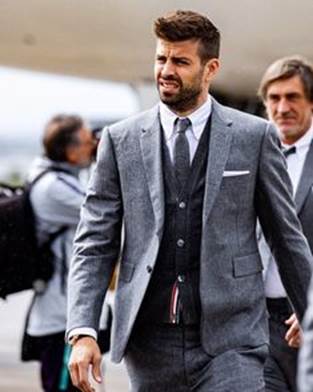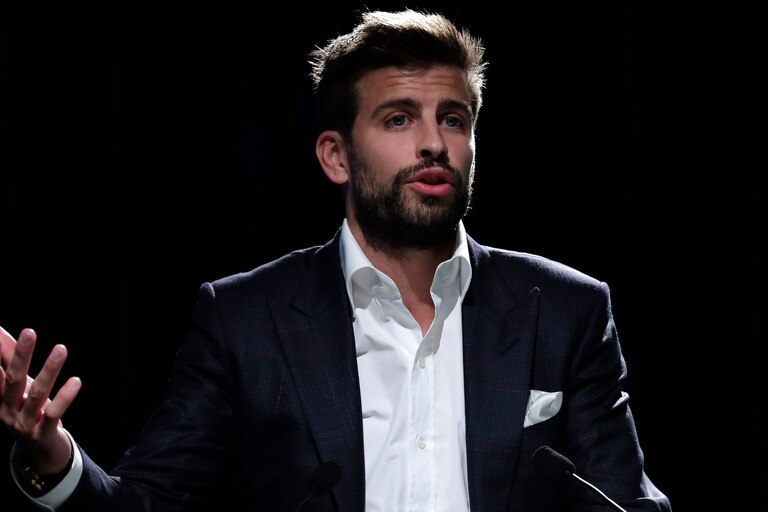Within the glittering constellation of global football superstars, where astronomical wealth is often a predictable byproduct of talent and fame, the financial narrative of Gerard Piqué’s eighty-million-dollar fortune distinguishes itself through its profound intentionality. This valuation represents far more than the accumulated earnings of a decorated athlete; it is the deliberate construction of a multifaceted business empire by a individual who strategically viewed his sporting career as a powerful launchpad for entrepreneurial ambition. Piqué’s journey from La Masia academy graduate to a titan of industry illustrates a modern paradigm where the pitch becomes a platform, and athletic success is leveraged as catalytic capital for ventures far beyond the touchlines. His economic standing is a masterclass in diversification, brand-building, and strategic foresight, positioning him not merely as a wealthy former player, but as a formidable business magnate whose most significant victories may yet occur in the boardroom.

The Foundational Pillar: A Legendary Footballing Salary
The undeniable bedrock of Piqué’s wealth is his legendary, two-decade-long career at the pinnacle of world football, namely his tenure at FC Barcelona. As a cornerstone of one of the most successful squads in the sport’s history, his compensation reflected his indispensable status. At his peak, Piqué’s annual salary from Barcelona was reported to be in the range of tens of millions of euros, a figure that placed him among the highest-paid defenders on the planet. This colossal income included a substantial guaranteed base wage, enormous performance-related bonuses for winning La Liga and the UEFA Champions League, and lucrative signing-on fees negotiated into his long-term contracts. This steady, massive influx of capital during his playing days provided the essential financial security and, more importantly, the investment liquidity required to fund his ambitious business ventures. It was the seed capital for his entire entrepreneurial ecosystem.
Kosmos Holding: The Strategic Nerve Center
The most definitive element of Piqué’s financial architecture is Kosmos Holding, his private investment group. Kosmos is not a vanity project; it is the strategic nerve center through which he orchestrates his diverse business interests. Its founding philosophy is to acquire, transform, and elevate properties in the sports and entertainment industries. Kosmos’s most audacious and transformative project has been its partnership with the Royal Spanish Football Federation (RFEF) to completely revolutionize the Davis Cup of tennis. Securing a 25-year commitment to manage and globally promote the historic team tournament, Kosmos injected millions into the event, overhauling its format, staging, and broadcast distribution. While the venture has faced financial scrutiny and challenges, its scale exemplifies Piqué’s ambition to operate on a global stage and fundamentally reshape sporting landscapes, moving him from athlete to influential industry power broker.
DAZN and Media Rights: A Foray into Broadcasting
Demonstrating a sophisticated understanding of the modern sports economy, Piqué has aggressively moved into the media distribution space. Through Kosmos, he founded production company Kosmos Studios, which subsequently secured a groundbreaking deal with global sports streaming service DAZN. The partnership made Kosmos Studios the exclusive producer of live football coverage for La Liga matches broadcast on DAZN in Spain. This venture is arguably one of his most astute. It transitions his revenue streams from being dependent on athletic performance to profiting from the insatiable consumer demand for football content itself. By controlling production, he earns revenue not just from rights holders but from creating the very product they broadcast. This move positions him as a key supplier in the sports media ecosystem, a far more scalable and durable business than relying on event management alone.
Football Club Ownership: Investing at the Roots
Further consolidating his influence across football’s hierarchy, Piqué led an investment group to acquire FC Andorra in 2018. This was a strategic, long-term investment that combined sentimental value—he has familial connections to the tiny Pyrenees principality—with sharp business acquisition. Under his ownership, the club has undergone a dramatic professionalization, achieving multiple consecutive promotions and climbing from the Spanish fifth tier to the second division, La Liga Hypermotion. This ascent has exponentially increased the club’s value, media revenue, and commercial appeal. Ownership provides Piqué with equity in an appreciating asset, full control over a club’s operations, and a laboratory for implementing his ideas about football management and development, all while generating revenue through player sales, sponsorship deals, and league distributions.
Endorsement Portfolio: The Leverage of a Global Brand
Throughout his career, Piqué’s marketability has been immense. His status as a World Cup and multiple Champions League winner, coupled with his high-profile relationship with international music icon Shakira, made him a constant presence in both sports and lifestyle media. This translated into a powerhouse endorsement portfolio. His longest and most significant partnership has been with Nike, for whom he has been a flagship athlete for well over a decade, featuring in global advertising campaigns and releasing signature merchandise. Other major deals have included agreements with brands like Rakuten, Beko, and the video game franchise Pro Evolution Soccer (eFootball). Each of these partnerships contributed seven-figure annual retainers to his income, further diversifying his revenue away from his football salary alone.
Ibérica Capital Partners: Diversification Beyond Sport
Perhaps the clearest indicator of Piqué’s ambition to be seen as a serious business leader, beyond the world of sports, is his co-founding of Ibérica Capital Partners. This private equity firm focuses on investing in and scaling small to medium-sized enterprises (SMEs) across Spain, particularly in the consumer goods, services, and technology sectors. This venture demonstrates a sophisticated approach to wealth management. It systematically diversifies his investment portfolio across the broader Spanish economy, mitigating risk should any of his sports-centric ventures face headwinds. It also provides him with equity stakes in a variety of growing businesses, offering the potential for significant financial returns as these companies expand and succeed.

Gerard Piqué’s $80 million net worth is a testament to a radical reimagining of what a footballer’s career can be. His fortune is not a simple accumulation of paychecks but a complex, interconnected web of strategic investments and business ventures. It is built upon the foundational pillar of his Barcelona FC salary, but was exponentially multiplied through the ambitious work of Kosmos Holding in reimagining the Davis Cup, his savvy move into sports media production with DAZN, his appreciating investment in FC Andorra, and his diversified private equity investments through Ibérica Capital. Piqué successfully leveraged his fame, his capital, and his sharp intellect to build a post-career identity that is arguably more powerful and certainly more enduring than his identity as a player. He is the archetype of the modern athlete-entrepreneur, a man who used the beautiful game not as an end in itself, but as the perfect platform from which to launch a lasting business empire.

